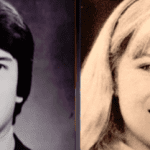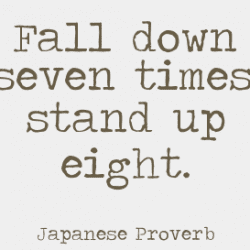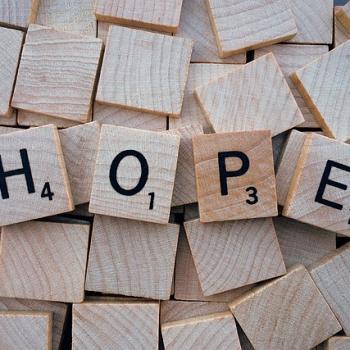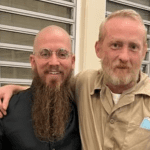Somehow my cancer treatments affected my ability to fall — and stay — asleep. So I haven’t slept through the night in more than a decade.
I’ve tried everything — Ambien, Valerian root tea, melatonin, meditation — but nothing has helped. So I’ve just lived with it. Lived with anxiety at bedtime, wondering how much sleep I’ll be able to get before it’s time to get up in the morning. Lived with fatigue that caffeine barely lifts. Lived with giving myself pep talks when I get out of bed after having lay awake most of the night.
A few months ago, my insurance forced me to switch to a new oncologist. I filled out a symptom survey at my first appointment. Fatigue? Check. Hot flashes? Check. Joint pain? Check. Insomnia? Check.
My oncologist asked me about each symptom, including insomnia. When I told him I haven’t slept through the night since my mastectomy 12 years ago, he asked if anyone had referred me to a sleep specialist.
No, I said. And I was a little embarrassed because I’m a health care provider, and I feel like I should’ve thought of that, but it never occurred to me.
A few weeks ago, I had a consult with a sleep specialist at UCSF who referred me to a sub-specialist and ordered some tests to see what’s going on inside my brain that’s disrupting my ability to sleep like a normal person. At the end of the visit, he pulled a blank piece of paper from his desk, wrote something down, and handed it to me.
“This is your assignment,” he said.
The assignment was a single word: “SMILE.”
I was baffled. Why is an internationally-respected specialist who practices at one of the top hospitals in the U.S. critiquing my facial expressions!? I thought, slightly offended.
When he saw my raised eyebrows, he began to explain.
“When you’re lying in bed and you can’t sleep, you get anxious, which releases adrenaline and cortisol, which make it even more difficult for you to sleep,” he said. “So when you can’t sleep, instead of getting anxious and worried about the fatigue you’ll experience the next day, just smile. It counteracts your stress response, and increases the likelihood of you falling asleep.”
I was skeptical. But at this point, I’d try anything to get uninterrupted rest.
When I got home, I did some research and confirmed that, indeed, there is scientific evidence to show that smiling is really, really good for you. It decreases anxiety, improves our immune systems, releases endorphins, lowers our blood pressure and alleviates depression.
I also learned that most of us have the association backwards — we think happiness causes people to smile, but often it’s the opposite. Smiling causes people to be happy. Somehow changing our expression changes our mood and makes us more positive and hopeful. It changes our biochemistry and our neurotransmitters.
Pretty amazing, right?
I remembered that when I was going through chemo and I was really depressed, the only thing that cut through the sadness were books that were really sarcastic and funny. I fell in love with Anne Lamott, David Sedaris and Augusten Burroughs. Instead of listening to music, I listened to stand-up comedians whose biting wit made me laugh and, just for a moment, find relief from the fear that was always close at hand.
There’s a reason why Proverbs says,
A cheerful heart is good medicine,
but a crushed spirit dries up the bones.
Humor helped me navigate through awkward and embarrassing things that happened to me because of my cancer treatments.
My aunt and uncle took me on a cruise to celebrate the end of radiation. On our first night of the cruise, there was a fancy dinner followed by dancing. I wore my favorite dress, as well as my shoulder-length wig. After dinner, the ship’s captain asked me to dance. While we slow-danced, he whispered compliments in my ear in his thick Greek accent.
The following day, I went to the pool sans wig. I ran into him in the hallway as I was returning to my room, and the shock on his face was priceless.
“What has happened to your hair!?” he asked.
“Oh,” I said. “I asked the salon to trim it and they took a little too much off the top,” I said, leaving him slack-jawed as I walked away.
Then, shortly after I finished chemo, I started dating a guy that I really, really liked. I mentioned to him that women who’ve had estrogen- and progesterone-sensitive breast cancer can’t take hormonal birth control. The best option is a copper IUD.
He thought I said IED (improvised explosive device) and, after a long pause, said, “Well…I guess if you exploded, you wouldn’t have to worry about getting pregnant….”
***
The sleep specialist’s one-worded advice — SMILE — reminds me that we are designed for joy. We’re made to prefer the sunny side of the street. We’re meant to laugh, meant to see the silver lining, meant to experience all the happiness and fun and silliness and giggles our broken but beautiful world holds.
Joy is the teaspoon of sugar that helps the medicine of chemo and radiation… and loss and deprivation and anxiety and struggle…go down.
















